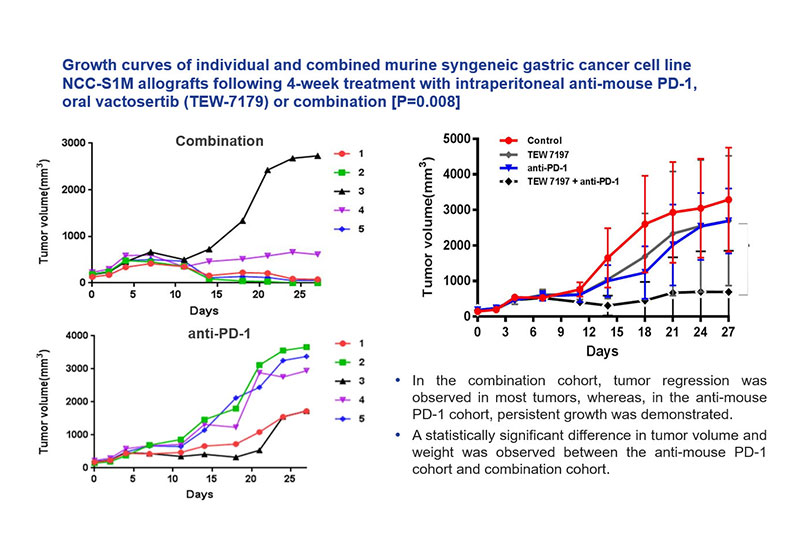News

 List
List
MedPacto, Inc. a subsidiary of Theragen Etex, a genome-based drug discovery and clinical-stage biotechnology company, announced today that it has entered into a clinical collaboration agreement with Merck & Co., Inc., Kenilworth, NJ, USA (known as MSD outside the United States and Canada), through a subsidiary, to evaluate the safety and efficacy of vactosertib (TEW-7197), MedPacto’s investigational small molecule oral inhibitor of TGF-β type I receptor (TGFBRI), in combination with MSD’s anti-PD-1 therapy, KEYTRUDA® (pembrolizumab), in patients with metastatic or locally advanced colorectal (mCRC) and gastric cancer/ gastroesophageal junction adenocarcinoma (GC/GEJC).
Under the terms of the agreement, MedPacto will conduct a Phase 1b study to establish the safety and dose of the combination agents.
Following the identification of a recommended dose, MedPacto plans to initiate a Phase 2a study to explore the efficacy of the combination in mCRC and GC/GEJC. The trial, expected to be initiated the second half of 2018 and completed within two years, will be conducted in several sites in South Korea, including Asan Medical Center, National Cancer Center and Samsung Medical Center.
“The revitalization of TGF-β for drug development further reinforces the importance of this pathway. We believe that Vactosertib’s immuno-modulatory role in combination with Keytruda is very promising for increasing responses in mCRC and GC/GEJC,” said Dr. Seong-Jin Kim, Founder and Chief Executive Officer of MedPacto.
KEYTRUDA® is a registered trademark of Merck Sharp & Dohme Corp., a subsidiary of Merck & Co., Inc., Kenilworth, NJ, USA.
About Vactosertib (TEW-7197)
Vactosertib is a potent and highly selective, orally available inhibitor of TGF-β type I receptor to block the SMAD-mediated and non-canonical TGF-β signaling pathway.
TGF-β inhibition enables immune infiltration to confer susceptibility to immuno-oncology therapies for treatment of cancers that grow in TGF-β rich environment.
Vactosertib was proven to be safe and well-tolerated in a Phase 1 study conducted in the US.
Therefore, vactosertib is currently being evaluated in Phase 1b/2a trials to treat a variety of solid tumors and hematological malignancies including gastric cancer, pancreatic cancer, desmoid sarcomas, myelodysplastic syndrome and multiple myeloma.
Vactosertib was originally discovered by Ewha Womans University with support from the Ministry of Education and Science Technology (2008-2013) and Phase 1 clinical development was conducted in collaboration with National OncoVenture (NOV, supported by National Cancer Center, designated by the Ministry of Health and Welfare).